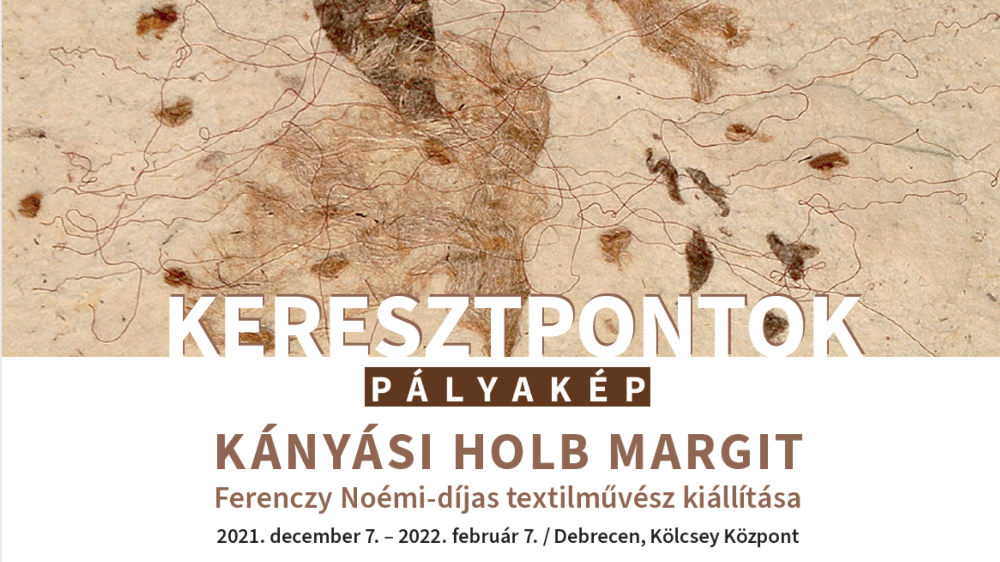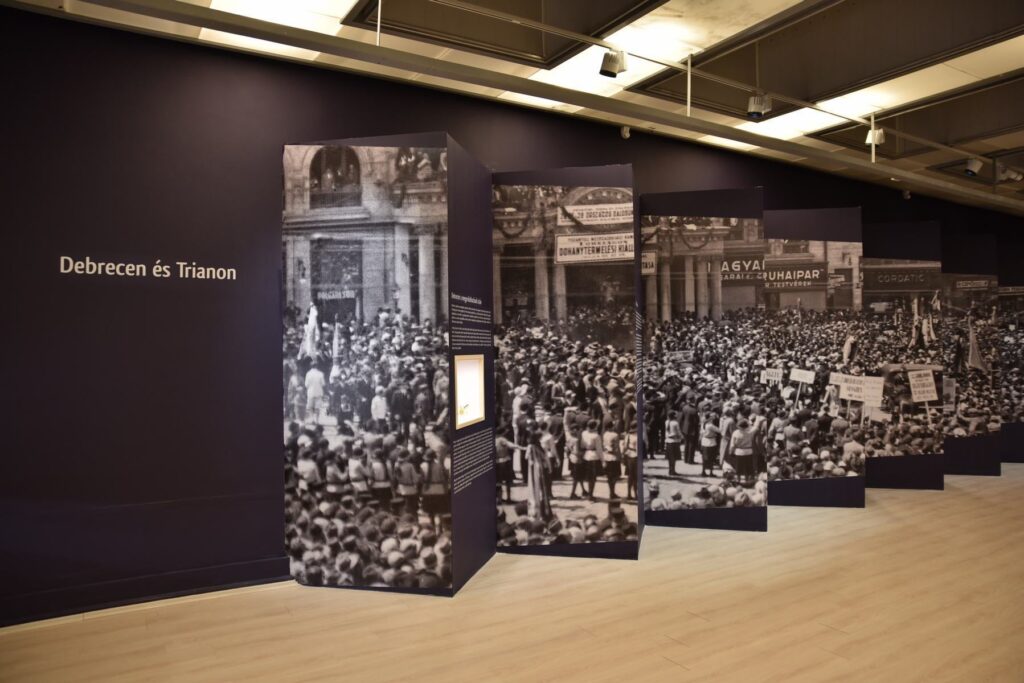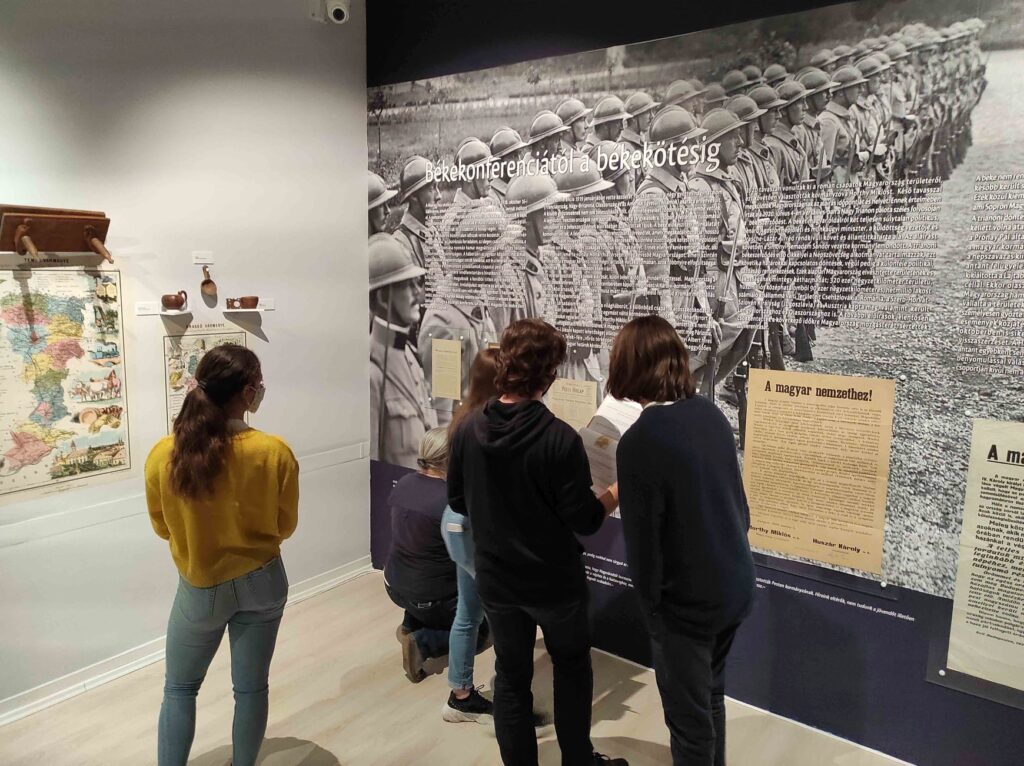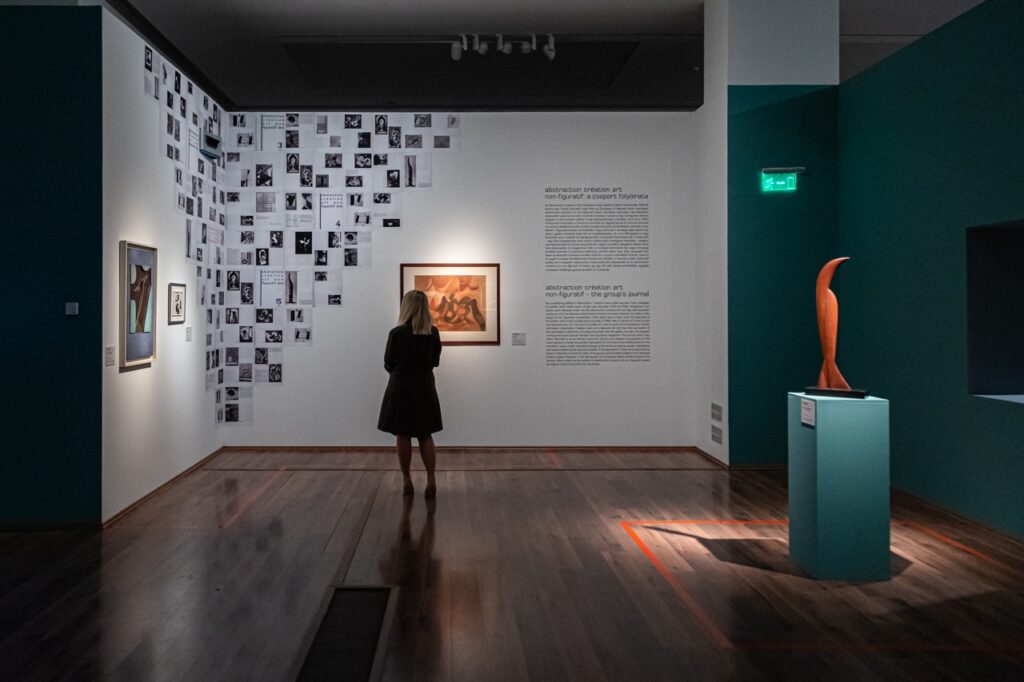Two major exhibitions close in January, and one at the beginning of February, so if you’ve not seen them yet, it’s not too late, you can catch them in the coming weeks. The Déri Museum’s temporary exhibition HATÁr-sorSOK (Borderlines) is on until 23rd January, while the MODEM Centre for Modern and Contemporary Art closes on 30th January with Parisian Abstracts. Abstraction-Création. Kandinsky, Hélion, Calder, Moholy-Nagy. Both exhibitions will close with a special closing programme on the last day.
HATÁr-sorSOK
The exhibition traces the changes in Hungarian borders and destinies, i.e. the impact on society, from the world of the “happy peacetime” to the era of territorial reattachments. It brings to life the world of refugees, the presence of revisionism, and irredentism in everyday life. The story of Debrecen, from the Romanian occupation onwards, shows how the city became the centre of the region after nearly a decade of initial uncertainties and stagnation. Objects, documents, period photographs, and film newsreel footage, as well as diary recollections, help to recall the events of Trianon and its aftermath and convey the feelings and pain of the people of the period.
The last day of the exhibition will be the 23rd of January 2022.
Date: 23rd January 2022 (Sunday) 2:00 p.m.
Location: Déri Museum, Díszterem, Zoltai Lajos Terem
Programme:
2:00 p.m. The Hymn in Central European Mirror to Kiss Gy. Csaba Kiss Gypsy, literary historian, Doctor of the Hungarian Academy of Sciences
2:30 p.m. Visuality and Authenticity in the Shadow of Trianon – A Comprehensive Pictorial Representation of Hungarian Folk Culture in the Graphic Collection of Frigyes Déri, and a Projected presentation by Dr. Márta Magyari, ethnographer
3:00 p.m. Screening of the short film Objects that tell the story of Trianon
3:15 p.m. Performance by the Debrecen Hajdú Dance Ensemble
3:30 p.m. Guided tour with Katalin Váradi, curator of the temporary exhibition HATÁr-sorSOK
Online guided tour Trianon from the perspective of the staff of the Déri Museum. A video is being made of the reflections of colleagues (7 to 8 people) on the exhibition. The videos will be uploaded to social media and the Déri Museum website the week before the finish.
The event is part of the Hungarian Culture Day series.
Admission is free of charge.
It is compulsory to present your immunity card and wear a mask at the event.
Parisian Abstracts.
Abstraction-Création. Featuring Kandinsky, Hélion, Calder, Moholy-Nagy
At the heart of this 1500 m2 exhibition is the world-famous Abstraction-Création, the largest official non-figurative grouping ever. With nearly 100 works, the exhibition brings together artworks from museums such as the Centre Georges Pompidou in Paris, Galerie Le Minotaure in Paris, the Mumok in Vienna, the Belvedere in Vienna, and the Musée d’arts de Nantes. Abstraction-Création presents paintings and sculptures by world-famous artists such as Vasily Kandinsky, Jean Hélion, Alexander Calder, Auguste Herbin, František Kupka, Jean Arp, etc. The exhibition will be the first to present the work of world-renowned Hungarians such as László Moholy-Nagy, Alfred Reth, and Étienne Beöthy, as well as avant-garde artists such as Lajos Tihanyi and Ferenc Martyn, who are renowned in Hungary, in the Paris Abstraction-Création. The exhibition is curated by art historian Dr. Flóra Mészáros.
The exhibition is open until 29th January 2022.
Parisian abstracts exhibition close
Date: 29th January 2022 (Saturday) 3:00 p.m.
Place: MODEM
Parisian Abstracts. Abstraction-Création. Kandinsky, Hélion, Calder, Moholy-Nagy… mega exhibition is about to enter its last big day. Visitors will be able to discover the largest official non-figurative grouping ever, Abstraction-Création, in 1500 m2 at MODEM, borrowing from institutions such as the Centre Georges Pompidou in Paris, Galerie Le Minotaure in Paris, the Belvedere in Vienna, etc. The finish will also give visitors an insight into the art scene of the early 20th century and the world of cafés.
Programme:
3:00 p.m. Coffee House Culture and Art Day programme round table discussion
The discussion will explore the art scene in Paris between 1910 and 1930; the relationship of the visual arts of the period to other fields; the French and Hungarian café culture of the 1920s and 1930s; the relationship between gastronomy and art; the contemporary place of cafés and other meeting places.
Participants: Gergely Barki, art historian; Flóra Mészáros, curator of the exhibition; Lia Pokorny, theatre artist and Noémi Saly, cultural historian
5:00 p.m. Joint subjective guided tour of the exhibition by Viktor Klem, actor, and Flóra Mészáros, curator
The joint guided tour will be based on literary works, musical and other artistic associations, personal stories.
6:30 p.m. Musical evening by Lia Pokorny
Well to known songs with an exciting emotional atmosphere, with piano accompaniment, original and prose arrangements. The musical evening thus brings the atmosphere of the cafés, a world guaranteed by the evocation of the music of Ella Fitzgerald, Gershwin, Edith Piaf, Nat King Cole, etc.
Participation in the programme requires an immunity card and the wearing of a medical mask.
Exhibition of Margit Kányási Holb Ferenczy Noémi Prize-winning textile artist
Exhibition of the Noémi Prize-winning textile artist Margit Ferenczy Kányási Holb
“Fabric, fabric, sheet, band.“
The connection between these words is the technology of weaving, which has remained unchanged in its construction for thousands of years.
Product, object, and what else can textiles be?
Artwork.

Is it possible to present nearly 50 years of professional ‘practice’ in an exhibition that faithfully reflects the journey we have made?
This exhibition is an attempt to do so, with particular reference to textiles, presenting the world of applied art, home textiles, pattern specimens, and autonomous textile objects.
The possibilities of visual vision, expression in textiles, and the creation of works of art were constantly occupied. I had nearly 50 solo exhibitions and hundreds of group introductions.
“As a result of learning about the technology and history of weaving and its deeper role in human life, my autonomous objects, textile objects, and installations were permeated by the ancient textile training process, revealing the universal meaning of weaving.”
Margit Kányási HolbMembership in professional organizations: 2014.
Hungarian Academy of Arts Public Applied Arts Section
2005 Hagyományok Háza Tanácsadó Testület (House of Traditions Board Advisory Board)
2004 Hagyományok Háza zsűri (House of Traditions Jury)
1992 Kulturális Alapítvány a Textilművészetért 1990. Debrecen (Cultural Foundation for Textile Art 1990. Debrecen)
Kézműves Alapítvány Művészet . Alap, a MAOE jogutódja (Handicraft Foundation Art Fund, successor to MAOE)
Awards (selection):
2021 30. Hajdú-Bihar megyei kiállítás, Debrecen MJV-díj (30th Hajdú-Bihar County Exhibition, Debrecen MJV Award)
2019 (Dimenziók, MAOE-díj) Dimensions, MAOE Award
2015 Ars Sacra Debreceniensis, Debrecen MJV Award (Ars Sacra Debreceniensis, Debrecen MJV-díj.)
2013 Ferenczy Noémi-díj (Ferenczy Noémi Award)
2004 Csokonai-díj (Csokonai Award)
1998 Munkáltatói Textil Biennále, Szombathely MJV Díj, (15th Employee Textile Biennale, Szombathely MJV Award)
Pro Renovanda Cultura Hungariae díj (Pro Renovanda Cultura Hungariae Award)
The exhibition can be visited free of charge until February 7th, with a security card and the use of a mask during the opening hours of the Kölcsey Center, from 10 a.m. to 6 p.m., and in the case of evening events until 7 p.m.



